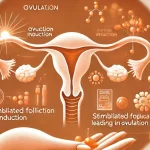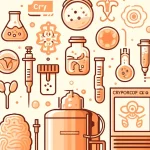The number in the title says it all: here we have 6 powerful foods that boost women's fertility. It may sound cliché, but what you eat has a huge impact on your well-being and can even affect your fertility in ways you might not immediately notice. In this article, we'll take you on a journey through foods that increase your chances of getting pregnant and avoiding foods that can decrease them. Let's start with the 6 Powerful Foods for Higher Fertility.
Omega-3 Fatty Acids

Omega-3 fatty acids, found in oily fish such as mackerel, sardines, salmon, tuna and herring, but also in linseed, seaweed, chia seeds, hemp seeds and walnuts, are miracle cures for fertility. They can improve the quality of eggs, slow their aging and contribute to the healthy development of your baby by stimulating nerve growth. If you want to increase fertility in women, consider including fish in your diet.
Vegetable Protein
 Plant proteins, such as those found in beans, legumes, ancient grains such as quinoa or amaranth, nuts and seeds, are associated with improved fertility in women. Reduce your intake of animal proteins, as excessive consumption can disrupt ovulation. Plant-based proteins are an essential part of a fertility diet.
Plant proteins, such as those found in beans, legumes, ancient grains such as quinoa or amaranth, nuts and seeds, are associated with improved fertility in women. Reduce your intake of animal proteins, as excessive consumption can disrupt ovulation. Plant-based proteins are an essential part of a fertility diet.
Folic acid
Folic acid, an essential B vitamin found in dark leafy greens, asparagus, legumes, beets, citrus fruits and nuts, plays a crucial role in overall health. It can reduce the effects of stress, which benefits fertility and is very important for the healthy development of your baby in the early weeks of pregnancy. Remember that some foods, such as bread and cereal, are fortified with folic acid.
Vitamin D
 Vitamin D, present in foods such as trout, salmon, mushrooms (exposed to UV-B radiation), sardines, egg yolks, cheese, chicken fillet and vitamin D-enriched foods, has a positive influence on your immune system and hormonal balance. This helps prevent ovulatory dysfunction, hormonal imbalances and insulin resistance, which is beneficial for your fertility.
Vitamin D, present in foods such as trout, salmon, mushrooms (exposed to UV-B radiation), sardines, egg yolks, cheese, chicken fillet and vitamin D-enriched foods, has a positive influence on your immune system and hormonal balance. This helps prevent ovulatory dysfunction, hormonal imbalances and insulin resistance, which is beneficial for your fertility.
Antioxidants
 Antioxidants, found in berries, spices, spices, nuts, vegetables and dark chocolate, protect your cells from harmful oxidative stress, which can negatively impact your fertility. It's time to enrich your diet with these powerful antioxidants to boost your fertility.
Antioxidants, found in berries, spices, spices, nuts, vegetables and dark chocolate, protect your cells from harmful oxidative stress, which can negatively impact your fertility. It's time to enrich your diet with these powerful antioxidants to boost your fertility.
Complex Carbohydrates
Foods with a low glycemic index (GI), such as whole grains, beans, legumes and some fruits and vegetables, stabilize your blood sugar and insulin levels. This reduces the highs and lows caused by simple carbohydrates and foods high in trans fats, which is beneficial for your fertility. It also lowers your risk of type 2 diabetes, high blood pressure and heart problems.
Now that you know which foods increase your chances of pregnancy, let's look at foods to avoid if you're trying to get pregnant.
Sugar & Artificial Sweeteners:
 Excessive sugar intake can cause inflammation and negatively affect egg quality. Artificial sweeteners can disrupt your hormone balance.
Excessive sugar intake can cause inflammation and negatively affect egg quality. Artificial sweeteners can disrupt your hormone balance.
Simple or Refined Carbohydrates:

These carbs disrupt your hormones and ovulation, so avoid them.
Trans fats:

Processed foods containing trans fats, such as fast food, can cause insulin resistance and reduce fertility.
Low-fat Dairy: Choose full-fat dairy products to prevent hormonal imbalance.
Processed Soy:
 Avoid highly processed soy products due to their excessive levels of phytoestrogens, which can disrupt your hormone balance.
Avoid highly processed soy products due to their excessive levels of phytoestrogens, which can disrupt your hormone balance.
Pesticides: Try to buy organic produce to minimize exposure to pesticides.
In summary
A healthy diet rich in omega-3 fatty acids, plant proteins, folic acid, vitamin D, antioxidants and complex carbohydrates can significantly improve fertility in women. By integrating these nutritional components into a daily diet, women can increase their chances of a successful pregnancy while supporting a healthy lifestyle. By including these six nutritional components in a balanced diet, women can significantly improve their fertility and lay a healthy foundation for a future pregnancy.








